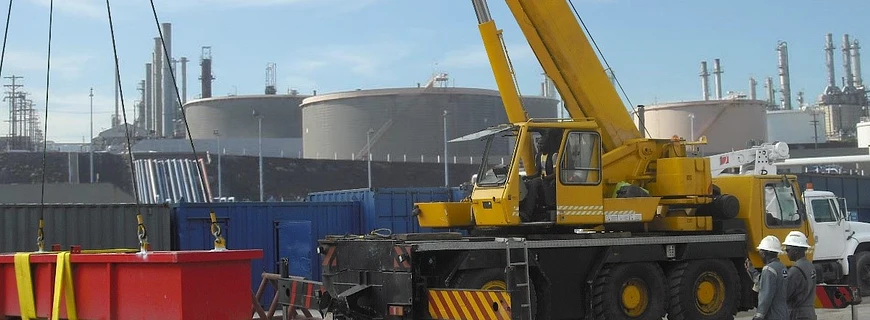CRANE SUPERVISOR TRAINING

Crane Supervisor Training Acquisition of Knowledge, Skills, and Abilities required for Responsible Supervision of Crane Lifting Operations
The Lifting Operations Lifting Equipment Regulation 8 (1) (a), deals with the safety of the actual lifting operation and stipulates what must be done before, during and after the lift. The crucial part of the regulation focuses on planning and supervision and states:
(1) Every employer shall ensure that every lifting operation involving lifting equipment is –
(a) properly planned by a competent person.
(b) appropriately supervised; and
(c) carried out safely.
The Competent Person is someone who has the required level of competency to be able to plan lifting operations and be able to check and authorise plans that have been written by others. He must have the practical skills and theoretical knowledge to plan lifting operations, undertake risk assessments and conduct toolbox talks. The Competent Person may or may not supervise the lifting process, but he is the focal point for all the technical aspects associated with lifting operations and lifting equipment. He must know his/her competency limitations and know when additional technical support is required.
The person must also have the skills and knowledge to make the necessary evaluation of the requirements that would guarantee safe lifting operation. The review includes an assessment of the risks, the lifting equipment being used, the location of the lifting operation, nature of the lifted object, the skill set of the lifting team/crew and other environmental factors that may be present.
Training and having the necessary qualifications as a Crane Supervisor play a significant role in competency assurance.
Why the Need for Training?
Proper planning and supervision are essential for the safe Lifting Operation, so, having the right training and qualification reduces the likelihood of failure. Other reasons are:
Reducing accidents and injuries to personnel
Cost savings by avoiding:
- Project delays
- Non-productive time
- Equipment and asset damage
Four Key Stages in Achieving Competency through training
Stage 1:
The first stage of all training comprises initial training and assessment, which is typically carried out at an onshore training establishment and identified as Stage 1.
Stage 2
After Stage 1, the level of competency is deemed sufficient for that person to conduct lifting operations under the direct supervision of a competent person as part of their Stage 2 training, i.e. supervised training and the practical application of the learning obtained in Stage 1.
Stage 3
This stage refers to an ongoing workplace assessment of competency.
Stage 4
This stage refers to the ongoing performance development with re-training as part of company overall competency system.
To conduct safe lifting operations to today’s high standards, employers must have a system in operation which permits personnel to progress through the stages to become competent to undertake lifting operations and to maintain this competence.
Crane Supervisor Training:
Crane Supervisors are responsible for supervising lifting operations and following the lift plan prepared by the Appointed or Competent Person. The Crane Supervisor training explains how to safely manage lifting operations to ensure compliance with the law and protect the health and safety of all employees and of those who may be affected by their actions. The training is designed to enhance existing knowledge of lifting operation and to enable the individual direct and supervise a safe lifting operation in accordance with the safe system of work. The training will also help to identify problems that may have the potential to lead to unsafe situations during a lifting operation.
To ensure a safe system of work; one person should be appointed as a crane supervisor to be in overall control of the lifting operation and to act on behalf of the organisation requiring the load to be lifted. The crane supervisor does not need to be an employee of the employing organisation; however, they must have adequate training, experience, and have technical knowledge and expertise to carry out the role competently.
At JC International, our accreditation with LEEA, OPITO, IADC, ISO 9001 and other relevant professional trade associations, ensures we deliver training, certification and qualifications in accordance with awarding bodies and approved codes of practice.
Our focus as a prominent oil and gas training provider is to provide a world-class training and certification service to ensure that our candidates gain the required competence and realise their full potentials.

Leave a Reply